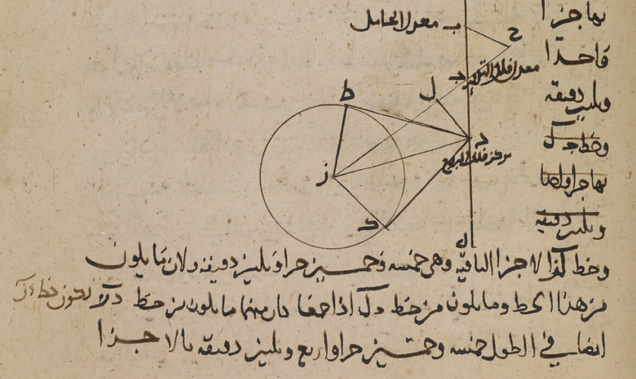1,000 Years worth of Arabic Scientific Texts Available Online
 I saw this news today and thought that it would be interesting to share! I don't want this blog to be narrowed down to a specific genre or just one type of text. I find this interesting and think you guys will as well. The Qatar Digital Library, an online archive that covers 'modern history and culture of the Gulf and wider region', has made these new texts available to the wider public. The QDL is a joint project from the British Library and the Qatar Foundation.
I saw this news today and thought that it would be interesting to share! I don't want this blog to be narrowed down to a specific genre or just one type of text. I find this interesting and think you guys will as well. The Qatar Digital Library, an online archive that covers 'modern history and culture of the Gulf and wider region', has made these new texts available to the wider public. The QDL is a joint project from the British Library and the Qatar Foundation.One of the texts now available on the QDL is The Book of Knowledge of Ingenious Mechanical Devices:
'The Book of Knowledge of Ingenious Mechanical Devices (1206 A.D.), which was inspired by an earlier, 9th-century translation of Archimedes' writings on water clocks. Devices such as the "Elephant Clock" (pictured below) were the most accurate time-keeping pieces before the first pendulum clocks were built in the 17th century by the Dutch scientist Christiaan Huygens.' (Source: IO9)
 |
| Source: IO9 |
 |
| Portrait of al-Kindi |
Fields studied were Mathematics, Astronomy, Medicine, Physics, Chemistry etc. etc. These were largely viewed in how they interrelated and came together into understanding the world as it works. The polymaths, known as hakim, were poets and writers who were also skilled in many of the sciences. One of the things they have to be credited with is the transmission of the sciences and they were the source for much scientific development and exploration.
One of these polymaths was Ibn Ishaq al-Kindi (801-873) who translated many Greek classical texts into Arabic and is known as the 'father of Islamic or Arabic philosophy' for his own writing, inspired by the Greek and Hellenistic texts he was translating. What I find especially interesting about him was his work towards combining his belief in Islam with his belief in reason.
This is, of course, only a small, tiny, minuscule peek into the wealth of knowledge and advancement which the Gulf and wider region blessed the world with early on. I think it's great that these texts have become available to the wider audience because not only are they full of wisdom, they are also stunningly decorated. So, if you have some time to spare, hop over to the Qatar Digital Library and have a look!



Comments
Post a Comment